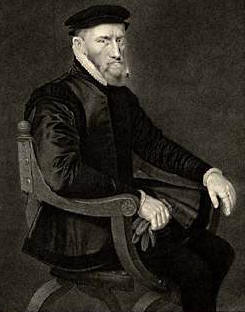Editorial-24 February 2003
|
A Gresham's Law for Australian Academe |
Gresham's
Law in its simplest formulation states, "bad money drives out
The recent suggestions as to what will be contained in the Federal Government's realisation of the Minister for Education, Science and Training's proposals for revamping higher education may achieve a system analogous to Gresham's Law thereby cheapening the value of higher education throughout Australia and devaluing the Nation's international standing.
Because of its immediate effect on the population, particularly those about to enter university, the probability that universities will be able to set, within limits, the fees they wish to charge thereby further restricting matriculated students from a university education has gained prominence. The case has been forcefully put in a recent opinion piece in the Sydney Morning Herald by David Hughes, immediate past general secretary of the National Union of Students. But Mr. Hughes doesn't merely whinge about potential high fees.
"Perhaps the minister might like to spend a day in the life of a casual academic - being paid by the hour and trying to fit research and teaching around an ever increasing administrative workload that has arisen because universities can no longer afford as many non-academic staff. ...[he] turns a blind eye to the funding crisis that is slowly turning our education sector second-rate, and threatening Australia's knowledge base. The minister ignored a parliamentary review entitled Our Universities in Crisis, ignored alarming figures showing spiralling class sizes and dropping contact hours between academics and students, and chose instead to hold another review."
Now perhaps it's not a blind eye with which Dr. Nelson views the universities' funding short fall, but it certainly would appear to be a myopic one; so far no one has attempted a cost-benefit study of what such an approach will mean to universities. Is it unreasonable to suggest that compared to what even our most prestigious universities require to upgrade their staffs and infrastructure, the increase in available funding will be marginal? And that assumes there will be no further erosion of public funding for the higher education sector.
It may surprise many Australians that the recently released
Productivity Commission report "[W]hile Education
Minister Brendan Nelson has prepared plans to reform the higher education
sector, [the Treasurer] Mr Costello says action in the Persian Gulf and a review
of the defence force will be the top priority. And if the decay of our university
system weren't already sufficient, to bring the matter into stark relief we were
told last week the placement of academics on individual workplace contracts as a
condition of receiving Government funding
If any governmental approach to higher education were a guarantee to dissuade
outstanding expat and foreign academics from taking up residents in Australian
academe, or to persuade top class resident academics that overseas employment
might be worthwhile investigating, surely this would be it. As an example of a
Cabinet utterly out of touch with the requirements of Australia's knowledge
infrastructure to achieve competitiveness with our cohort nations, it must rank
near the very top. Alex
Reisner![]() assessed the contributions to higher education through private funding in
the United States is 54%, in Australia it is shown to be 47% (including HECS)
while Canada clocks in at 39%. In short, currently we are 7% behind the
motherland of the private university in private funding and we will be
encouraged to narrow the gap. [Incidentally, the British Government which is
currently considering "top-up fees", gets 27% of higher education funding from
private funds.
assessed the contributions to higher education through private funding in
the United States is 54%, in Australia it is shown to be 47% (including HECS)
while Canada clocks in at 39%. In short, currently we are 7% behind the
motherland of the private university in private funding and we will be
encouraged to narrow the gap. [Incidentally, the British Government which is
currently considering "top-up fees", gets 27% of higher education funding from
private funds.
" 'The first call on funds in this budget as you would expect
will be in relation to our defence forces,' he said."
The Funneled Web
